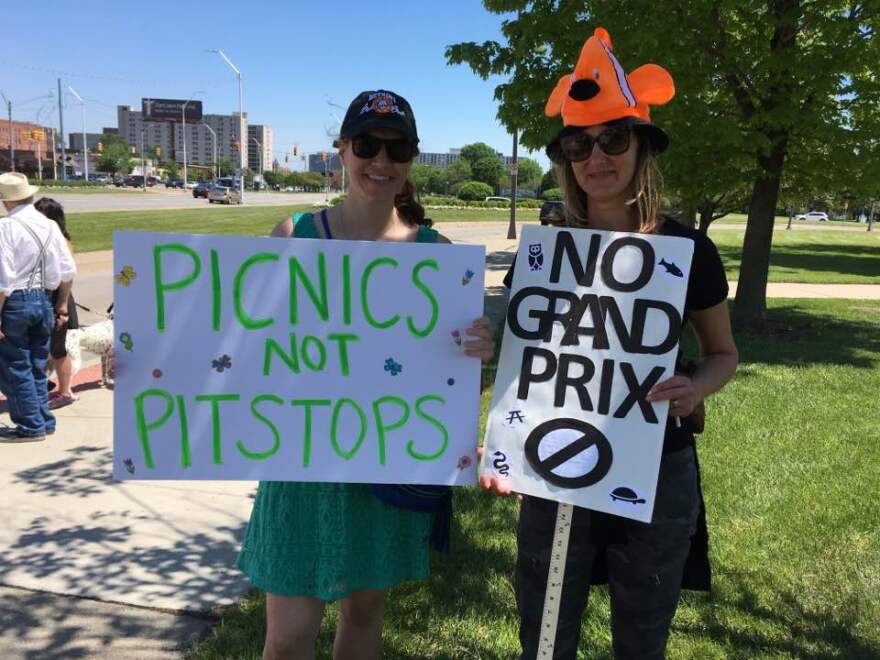The Detroit Grand Prix will draw thousands of auto racing fans to Belle Isle starting next week. But not everyone is happy about it.
A group of those opponents took this weekend before the IndyCar race to stage a protest just off the bridge entrance to the island park.
Most of them said they’re not opposed to the Grand Prix itself. But they are opposed to it being run on Belle Isle, which became a state park during Detroit’s municipal bankruptcy in 2014.
Their main complaint: the event has turned a portion of the 1.5 square mile island into a racetrack that’s off-limits to the public for about three months a year.
Longtime neighborhood resident Helen Gentry has opposed the race since it returned to Belle Isle and expanded in 2007. With the exception of a 2009-11 hiatus, it’s been held there ever since.
“I am not against auto racing, but this is a public park,” Gentry said. “Closing it off, messing up the environment with concrete…no. This is the wrong place, the wrong time.”
Carol Rhoades has also lived just off Belle Isle for more than 40 years, and isn’t opposed to the idea of the Grand Prix either. But she says Belle Isle is “no place for a race.”
The racetrack area is “Ten acres of cement where there were beautiful grass and trees before,” Rhoades said. “This is a privatization of a public park. It’s our right to have a public park open to us every day, and it’s not.”
Rhoades and others say the Grand Prix is contrary to the spirit of Belle Isle’s origins, as a natural sanctuary and recreation space in the heart of the city. They also worry about the impact of auto racing on the island’s natural habitat, especially as it sits in the path of an important flyway for some migratory birds.
But Grand Prix boosters argue the race has become a premier event for Detroit, generating much-needed revenues that include millions used for improvements to Belle Isle.
This latest incarnation of the Detroit Grand Prix was spearheaded by Detroit-based billionaire racing team owner and automotive businessman Roger Penske.
Penske generally enjoys strong support from Detroit and state political leaders, as well as the non-profit Belle Isle Conservancy that helps manage the park with the Michigan Department of Natural Resources.
But some have also expressed concerns about aspects of the race—particularly the unusually long time it takes from set-up to breakdown, much longer than most other street races around the world.
The current contract giving Penske rights to run the Grand Prix, doesn’t set a time limit for that process. But it expires next year, and is in the midst of being re-negotiated.





